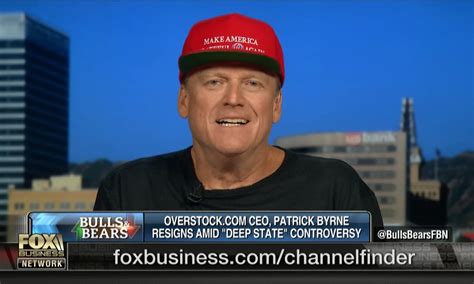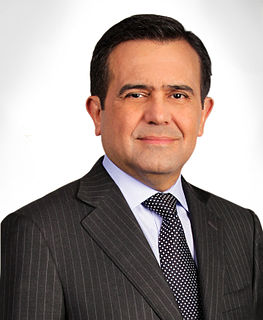A Quote by Patrick M. Byrne
With the block chain, for the first time, we no longer need these central institutions for settlement or for guaranteeing the value of coins or for land titling. All of these functions can be replaced by a transparent public ledger that is safe from tampering and which can make value and ownership clear and open for everyone.
Related Quotes
I think the best projects understand that they don't need to invent a new currency. They don't need to use the block chain as their long-term data storage solution. And they don't need to use the peer-to-peer network as their communication mechanism. They should use the block chain as the world's most secure distributed ledger.
When we look at government in Washington or what's happening on Wall Street, we see so much centralization. But really, our goals should be to eliminate and overcome these central institutions. And in recent years we have gained powerful new tools to do this, and most significant among those is the block chain, which is the software behind Bitcoin.
Of God's love we can say two things: it is poured out universally for everyone from the Pope to the loneliest wino on the planet; and secondly, God's love doesn't seek value, it creates value. It is not because we have value that we are loved, but because we are loved that we have value. Our value is a gift, not an achievement.
Notions of property, value, ownership, and the nature of wealth itself are changing more fundamentally than at any time since the Sumerians first poked cuneiform into wet clay and called it stored grain ... few people are aware of the enormity of this shift and fewer of them are lawyers or public officials.
A Land Valuation Tax is a levy on the value of the land unimproved by buildings or other enhancement. The method is already used by insurance companies each year when they calculate your home insurance premium - they separate the cost of a total rebuild of the property from the value of the land itself.































